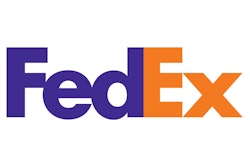Four fitness facilities use four successful marketing techniques for growing their personal training programs.
Like any business, a big part of your success in personal training relies on effectively marketing and actively selling the services you provide. And, how you market and sell your services depends on how you structure your personal training business. There are several ways to do this. Here, learn from others who have had success with their programs. Four fitness centers share the marketing and selling techniques they have found to be most effective for their personal training model.
The Omni Club
At The Omni Club, Athens, Ga., clients purchase 30-minute sessions according to the length of the term rather than a specific number of sessions. "We sell three-, six- or 12-month packages. Clients can choose to train one to five times a week," says Curtis Adams, personal training director. "They can either pay monthly through EFT, or pay in-full at the time they purchase the package."According to Adams, The Omni Club has developed a reputation in Athens as the best place for personal trainers to work. "Omni is in a small town. If someone is going to be a trainer, they want to work at the best club," he says. "Because of this, we have a pretty easy time attracting good personal trainers." Many of the personal trainers Adams has hired were referred to the facility by current employees. All personal trainers are required to be certified by either NASM, ACSM or NSCA.
Adams pays his personal trainers an hourly "fitness floor" rate, plus a session flat fee for all sessions they deliver. When not training a client, personal trainers have the ability to work the fitness floor on a schedule approved by him. To ensure that trainers are being productive, he tracks the number of sessions they deliver weekly. "We encourage our trainers to strive to deliver an average of at least 50 paid 30-minute sessions each week to be considered full-time," he says. "But most of our trainers are part-time, delivering less than 25 30-minute sessions a week."
In addition to the hourly floor rate and flat session fee, trainers receive between 7 and 10 percent commission on the total value of any new or renewal personal training package they sell. However, the majority of training packages are sold by a program consultant rather than by the personal trainers. "This is something we would like to change," says Adams. "We are currently in the process of revising our business system to provide better tools to the trainers so they will take more responsibility for selling packages."
In the meantime, it is the program consultant's responsibility to present personal training package options to all new members who go through the new member orientation, in addition to contacting existing clients to renew their training packages. "At the point of sale, the membership sales person schedules all new members for a one-hour orientation with the program consultant," Adams explains. "After an indepth needs analysis and assessment, the program consultant takes the member onto the floor for a brief workout, and finishes the appointment by presenting recommendations for training packages." According to Adams, the keys to personal training sales success at The Omni Club are the one-on-one orientation appointment, and program consultants with exceptional sales skills. "It's about giving members solutions. Our program consultants 'WIFM' them." Translation: What's in it for me?
Adams admits that while having one individual responsible for selling personal training to members works extremely well from a sales perspective, many of the trainers are indifferent about asking existing clients to renew their packages and about approaching members on the floor for the purpose of gaining new clients. "Because the program consultants are so skilled at selling packages, the trainers have enjoyed the luxury of having plenty of clients fed to them," he says. "Again, we are working to develop a new system so our trainers will be more responsible for selling packages in addition to the program consultant."
XSport Fitness
"We use old-school, guerilla marketing," says Victor Verhage, director of training and education for XSport Fitness, Chicago, Ill., Washington, D.C., and 25 locations in Virginia. "No mailers, no paper. We pound the pavement. Our membership staff is incredible at presenting and putting together solutions. We offer programs, solutions and options."At XSport, all new members go through a fitness evaluation. "The member pays a fee for the evaluation," says Verhage. "It is an important tool in selling personal training packages." Trainers are offered the opportunity to conduct fitness assessments on new members. In addition, they are encouraged to schedule existing members for an assessment right off the floor. "'Now' matters," says Verhage. "Right now - don't let them walk away." He encourages trainers to do the assessment immediately rather than scheduling them for an appointment later.
The Omni Club's Personal Training Marketing Techniques
|
||
Members at XSport purchase a specific number of personal training sessions based on their goals. They are required to put a certain percentage of the total package price down, and make monthly payments on the balance. All personal training sessions are one hour in length.
Membership staff and personal trainers are paid a commission on the total value of any personal training package they sell. To help them in presenting personal training package options, they use a structured sales tool to ensure the presentation is consistent. The personal trainers at XSport are required to sell a certain amount of personal training in order to stay employed. This sales quota is tracked daily along with their closing percentage (from the fitness evaluation appointments) and number of sessions they deliver. Management closely monitors each trainers' productivity based on these measures. "The goal for our trainers is to sell and deliver," says Verhage. "If they can't meet their minimums, they can't stay."
In addition to receiving a commission on the sale of personal training packages, trainers are paid a flat hourly rate for all sessions they deliver. The hourly rate is determined by the trainer's level. "We have two levels of trainer," Verhage says. "Experience, education and productivity determine a trainer's level."
The trainers at XSport do all their own marketing. "Our system is simple. It is about building relationships. Our toughest challenge is hiring enough personal trainers," says Verhage. "We can sell, but we don't have enough people on staff to deliver all the sessions we do sell."
Telos Fitness Center
"The biggest component to the success of our professional training business is the underlying training philosophy throughout our training department," says Cecil Hightower, director of professional training at Telos, Dallas, Texas. "You won't see inconsistencies or a lack of chemistry among the trainers."This synergy is due to the fitness center's strict standards. "What sets us apart from other facilities is what we require to work here as a trainer," says Hightower. Candidates must have a four-year college degree and two national certifications, and have completed a biomechanics course at The Cooper Aerobic Center in order to get an interview. Newly hired trainers must complete a three-month paid internship. All personal trainers are full-time, delivering a minimum number of hourly sessions each week and generating a minimum amount of revenue each month. These minimums must be met in order to remain employed.
Personal trainers are solely responsible for selling training. And trainers are responsible for the retention of their clients. Aside from a special five-session introductory package, Telos sells training one session at a time. "[Single sessions] make us perform better every time to earn our clients' business," Hightower says. "We give sessions away free all the time. You have to give to get."
Commission is a large incentive to sell. "Personal trainers are paid commission on what they sell each month," says Hightower. "Commissions range between 40 and 55 percent. The commission percentage a trainer receives is based on their level." Telos has five different levels of trainers. The level also determines the hourly rate members pay for training.
The primary marketing tool for personal training is Telos' award-winning Advanced Integrated Movement (A.I.M.) assessment. "All new members are scheduled to meet one-on-one with a trainer for a complimentary assessment," Hightower says. Conducted in two one-and-a-half-hour segments, it goes beyond the traditional fitness assessment. The trainer conducts a 360-degree postural analysis, range of motion analysis and strength test in every joint, 100 muscle tests and a cardiovascular submax test.
Once a member enters the assessment process, Hightower says 70 percent purchase training. Telos offers complimentary re-assessments to members a few times a year, and does not use a structured sales system. "We provide our members with a 20-page assessment booklet with illustrations that documents the assessment results," says Hightower. "The way the booklet is put together serves as our sales template."
Hightower estimates that personal training revenue is approximately 60 percent of total facility revenue.
The Arena Club
Mike Edge, fitness, personal training and sports performance director for The Arena Club, Bel Air, Md., works with three levels of trainers - Professional, Elite and Master. Trainers are paid a flat session rate, and are tracked on the total revenue they sell each month. "Our trainers are responsible for both selling and delivering training. Because we track their training sales monthly, we only sell monthly packages. If a client commits to two times a week, they purchase eight sessions. If they will come in three times a week [they pay for] 12 sessions. ... We want our clients to get used to paying for training on a monthly cycle for EFT purposes."There is one exception to Edge's monthly package rule. "We use a structured system for selling personal training - the Visual Fitness Planner (VFP). Within the system, we offer an initial package option to purchase 24 sessions to be used over a three-month period. We have two part-time member integration specialists whose job it is to present and sell personal training packages to members. All new members are scheduled to meet with the integration specialists. They also walk out on the fitness floor and invite members to go through a consultation. Our monthly training revenue has increased by 50 percent over a nine-month period [because of this system]."
Edge says that his marketing is simple: "Member referrals, word-of-mouth in our community, and a conscious effort over the years to brand our trainers and coaches as 'the best in the area.' Since we implemented a structured system for selling personal training, the Visual Fitness Planner has become our best marketing and sales tool for our services." Edge is impressed with the retention of those clients who are connected to trainers after going through the Visual Fitness Planner presentation. "Twenty-five percent of our monthly gross revenue comes from VFP, and 75 percent of the clients who purchased training through VFP in the past are being retained as clients."
Personal training changes lives
Personal trainers have positively affected the health and well-being of millions of people. Ensuring that every member is educated on how personal training can help them can mean a big return for the member, the personal trainer and the facility.Read Next
































